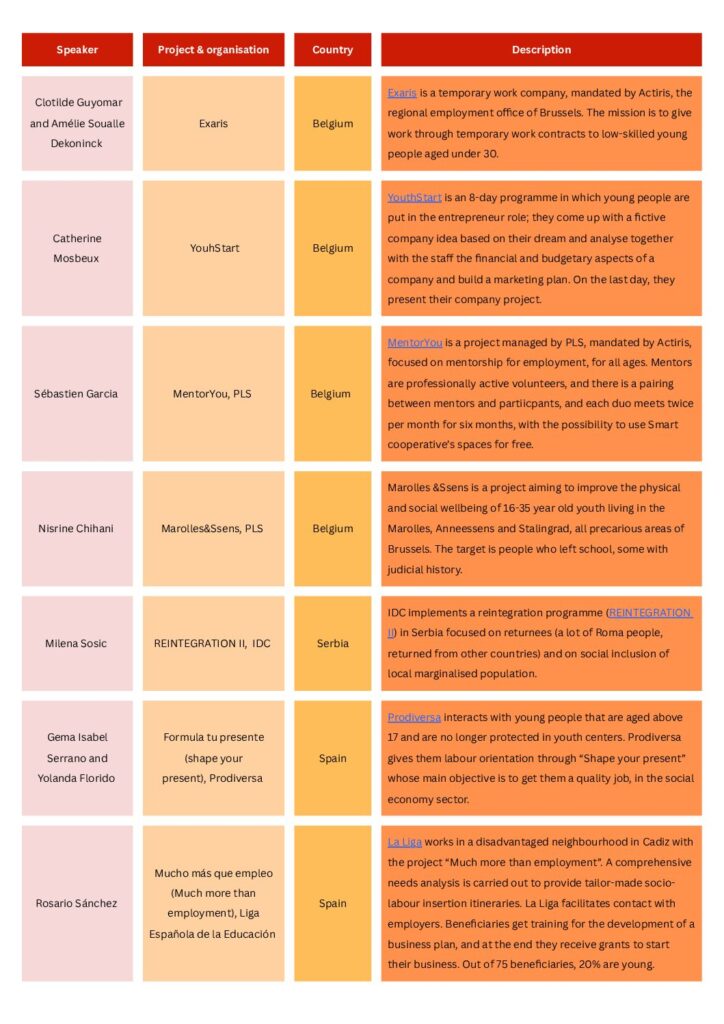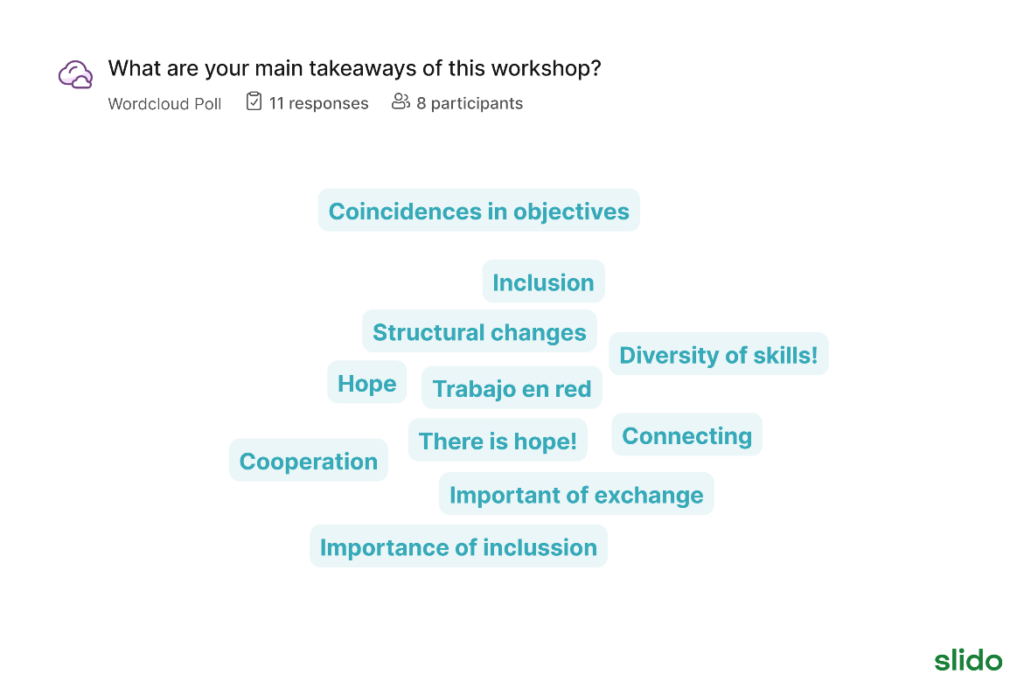Workshop on Youth Employment and Social Inclusion – exchange of good practices from civil society
Youth unemployment and the high figures of young people not in employment, education and training (the so-called NEETs) is still a big obstacle to social justice in Europe. Several SOLIDAR members and partners work at national and local level to tackle this issue and have gathered extensive experience on the ground and good practices.
On 28th May SOLIDAR co-organised with our Belgian member Pour la Solidarité (PLS) an event on youth employment and social inclusion to set the context of the situation in Europe, as well as to exchange good practices among CSOs and experts. This took place in the framework of SOLIDAR’s activity called “Social Rights Ambassadors Workshop”.
The event was opened by joint remarks by Carlos Roldán Mejías, Social Policy Coordinator at SOLIDAR and Françoise Kemajou, Director of PLS. The two introduced the objective of the workshop: to have a brief analysis of the situation of youth unemployment and exclusion in Europe and to exchange knowledge and ideas on how CSOs, policymakers and other stakeholders can work together to address such issues.
Session 1 – The European Landscape
The scene setting was provided by the interventions of Pirkko Pyorala, Policy Officer at DG EMPL and Alex Quinn, Policy Officer at the European Youth Forum. The first speaker shared data from the Commission on youth unemployment and NEETs and highlighted that the mismatch between the skills of young people and the demand of the labour market causes in some countries in the EU the situation for which some jobs are not covered, and many young people are unemployed. She also mentioned some trends across young unemployed people, such as the women in rural areas are more at risk or that precarious jobs are overrepresented among young workers. She then mentioned the initiatives put forward by the European Commission in this area, such as the Renewed Youth Guarantee, the Alma Scheme and the proposal to reinforce the Council Recommendation on Quality Framework for Traineeships.
Alex Quinn explained that youth is not a homogeneous group with different needs and backgrounds and should be treated as such in the elaboration of measures to contrast exclusion and unemployment that are tailored to them. He mentioned that one of the biggest challenges of the labour market today is that labour is not fairly distributed and there are sectors in which workers are overworked and at the same time many young people struggle to find jobs. Measures that address this issue must be devised, such as the 4-day work week. Consequently, he underlined the positive measures put in place by the Commission, such as the Directive on improving working conditions in platform work, which is a form of employment in which young workers are overrepresented. He then identified key areas of improvement including the need to improve working conditions for young people and overcome the dogma that any job is better than no job.
An exchange with the audience followed, which touched on the need for trade unions to strengthen their representation of young people and the role that the European Year of Skills had in raising awareness of youth rights and needs.
Following the two interventions, Françoise Kemajou, presented the article titled “To be or not to be NEET? The complexity of school-to-work transitions in Brussels” and authored by Géraldine André and Andrew Crosby. Building on a comparison between non-NEETs and NEETs along certain lines such as their identity, the feeling of belonging (or not) to society, levels of trust in institutions, the article concluded that being NEET is prism rather than a homogeneous label. For this reason, the statistical categories of NEETs should be finetuned to build risk indicators and be more effective in the actions to tackle social exclusion and unemployment of young people.
Session 2 – Sharing best practices
An exchange of good practices from SOLIDAR’s members and PLS’ partners took place. Participants presented their projects and initiatives aimed at contrasting youth unemployment and exclusion:

During these exchanges, speakers touched upon key aspects of the projects, such as:
- the sustainability and quality of the jobs created through the projects, which is an important challenge for all the organisations wokring of labour market and the social inclusion of young people.
- The importance of locating the premises of the project in places that are near and accessible to the target participants
- The strategic value of connecting with other local actors that can ensure outreach to the target group
- The need to raise awareness of the potential and diverse skills that each one of us have, both to find our way in society and to help others to find theirs (e.g., through mentorship).
The workshop was closed by some concluding remarks and a Slido exercise to gather the main takeaways.

This workshop was organized in the framework of SOLIDAR’s Organisational Strategy 2021-2025 and the program ”Realising Social Europe for All and With All”, supported by the European Union, through the EaSI strand of the ESF+ programme.


